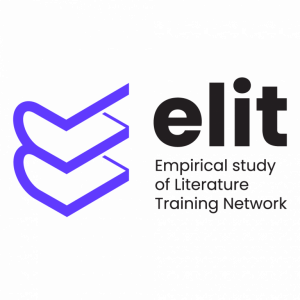 ELIT: EU project – PhD position at the University of Warsaw (partner university: University of Vienna)
ELIT: EU project – PhD position at the University of Warsaw (partner university: University of Vienna)
The University of Warsaw invites applications for PhD fellowship (3 years) in an international, multi-partner EU project – Empirical study of Literature Training Network (ELIT). The successful candidate will receive a double degree: PhD in the Humanities at the University of Warsaw and in Psychology at the University of Vienna.
The study will take place mostly in Warsaw, Poland and the candidate will be employed at the University of Warsaw (supervisor: Prof. Monika Płużyczka). 12 months (months 23-34) will be spent at our academic partner organization, i.e. at the University of Vienna, Austria (co-supervisor: Prof. Helmut Leder, involvement in the project: Differentiation between reading in natural and artificial environment). There is also a secondment at our non-academic partner, hosted by Lillestrøm High School/ Norway (industrial mentor: Ole T. Mangen; length: 2 months, months 39-40) for gaining experiences with planning and preparing literary reading projects at schools, including the selection of literary texts and didactic implementation of these texts in the classroom.
The position is vacant from October 2020.
Project title: Literary text perception and comprehension.
More: https://www.elitnetwork.eu/call-for-applications/
Project objectives: In our project, we will establish through empirical research the cognitive specificity of literary reading. During eye tracking experiments and the analysis of the results, we will check whether the reading of literary texts shows specific eye movement patterns and therefore specific mental characteristics. In this phase, we will try to distinguish particular mental processes that underlie literary reading, as well as their causes. We will also try to recognize biological/physiological eye tracking indicators of relaxation (i.e. activation of the parasympathetic nervous system). Relaxation will be understood here as mental well-being. In the project, we will also try to assess to what extent the cognitive specificity of literary reading is derived from linguistic factors and genre-based factors. To do that, we will conduct linguistic analyses on a sample of selected texts from various literary genres to show the differences in responses of readers between those types of literary texts.
The ELIT Network consists of ten European Universities that are at the forefront of the empirical study of reading literature. In addition, the network includes thirteen non-academic partners from domains such as literacy (i.e., literacy associations, reading foundations, educational policymakers), bibliotherapy (i.e., reading groups, libraries), production (i.e., publishing houses), and research (i.e., international research networks).
